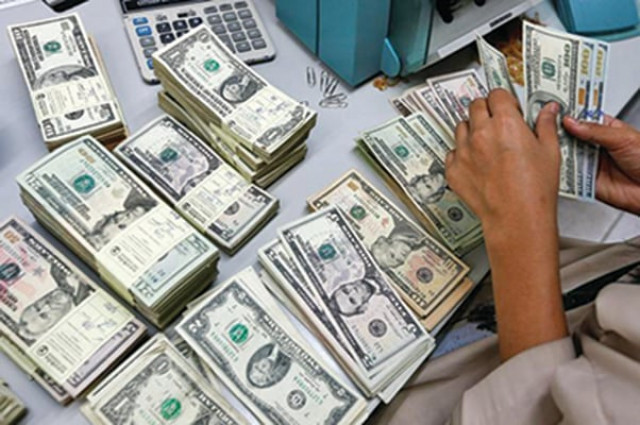Woes easy to understand, but require resolve to fix
As Pakistan aims for higher growth, it will put a more severe strain on its foreign currency reserves

Pakistan’s economic woes aren’t hard to understand. They’re difficult to fix and require a great deal of resolve. And resolve does not come from the public. It comes from official quarters. This is why over the years blame has been placed on successive governments and policymakers.
Over the course of the last decade, if one thing Pakistanis can be certain of is that their economy is more closely linked with the dollar than they would care for. We import more than we produce in the energy sector, massively pegging our tariffs with the exchange rate. Any fluctuation in it results in a massive overhaul and reshuffle of the entire cost structure of businesses and consumers.
Similarly, when you aim for a boost in economic growth, it requires energy – quite literally. Where is the demand met from? Imports.
In the case of consumption of petroleum products, over 40% is imported. When it comes to natural gas, more than one-third of our need has to be met through imports. The Economic Survey 2018-19 also points out that despite having coal deposits, only a fraction is utilised.
This background explains a massive issue within the economy. To fuel economic growth and activity, Pakistan has to put a severe burden on its foreign currency deposits. Dollars have to flow out of the country on a regular basis to meet demand. When you add Pakistan’s per-capita consumption of energy to the equation, you realise that the country doesn’t even come close to the world average. Its figure is 460kg of oil equivalent per capita, compared to the world average of 1,922kg, according to 2014 figures available with the World Bank.
There is little room left to imagine that as Pakistan aims for higher growth, it will put a more severe strain on its foreign currency reserves, which average around the $16.7-billion mark since 2011 including deposits with commercial banks. If one were to only look at SBP’s official reserves, the average drops to a paltry $11.3 billion since 2011.
The reason why I am looking at averages since as early as 2011 is because that reveals the trend. This figure has gone as low as under $3 billion, and as high as near $20 billion. This occurred between 2014 and 2016.
This should convey the extent to which Pakistan’s economy is volatile. And what this volatility costs it.
Investors look at these figures, and turn away simply because there is too much that is unknown, and too little that they can control. Cost structures change massively over the course of a few months, and within years business models and return expectations tumble.
This is just one aspect of Pakistan’s external trade and its ability to finance imports. In such a scenario, with a precarious foreign currency situation, one would like to hope that policymakers would do everything within their power to control expenditure. Instead, what we see is a bumpy course of affairs, with the LNG fiasco being one of them.
When you have drivers who at the wheel cannot or do not want to decide which direction they want to take, rest assured, passengers do not board. For those unfortunate ones who do participate, the ride is a headache.
Pakistan needs a sound, consistent policy that does not, for every mistake, add burden on the taxpayers – the few who actually do contribute. To achieve this, it requires a concerted effort that starts at the top. You want investors to pour millions of dollars? Give them a five-year policy that tells them this is how their financial future would look like if they invest in Pakistan. Don’t give them promises or words. Win them over with policies and action.
The writer is former business editor of The Express Tribune, and winner of the Citi Journalistic Excellence Award 2018. He holds a MBA from Cass Business School, and is currently associated with the CEJ-IBA. His Twitter handle is @bilala_memon
Published in The Express Tribune, December 21st, 2020.
Like Business on Facebook, follow @TribuneBiz on Twitter to stay informed and join in the conversation.



















COMMENTS
Comments are moderated and generally will be posted if they are on-topic and not abusive.
For more information, please see our Comments FAQ